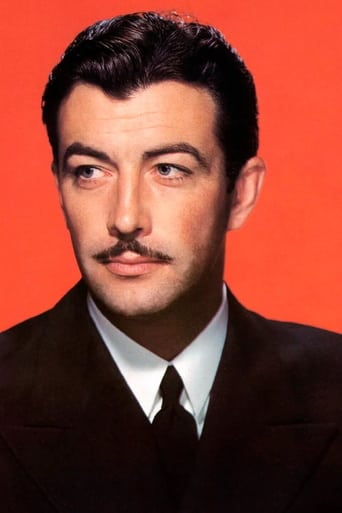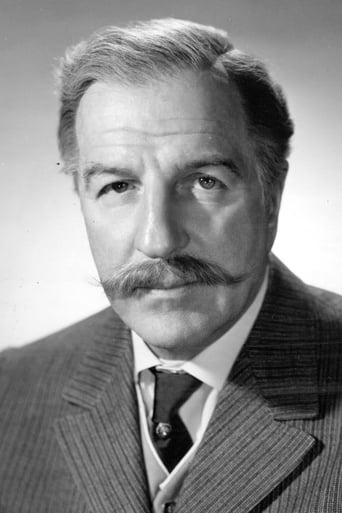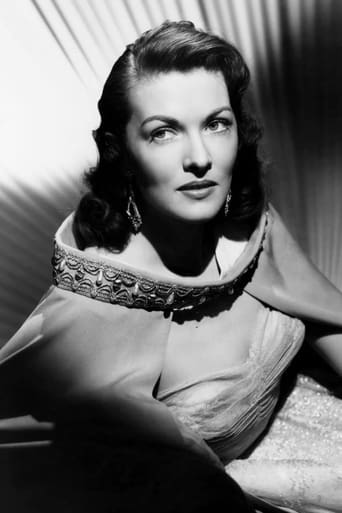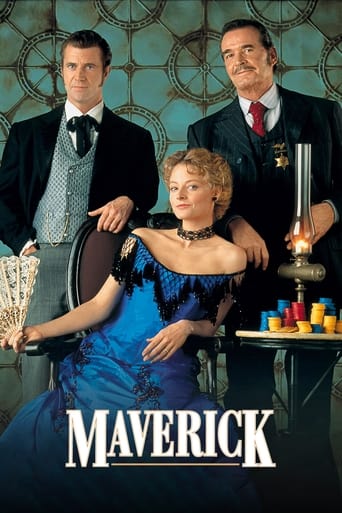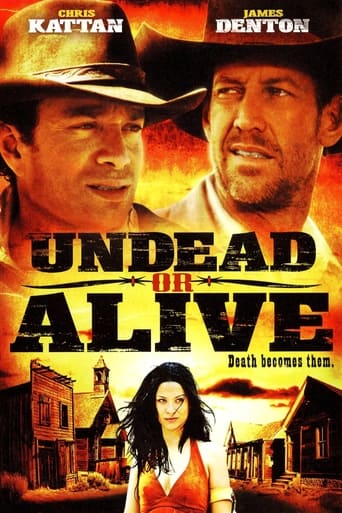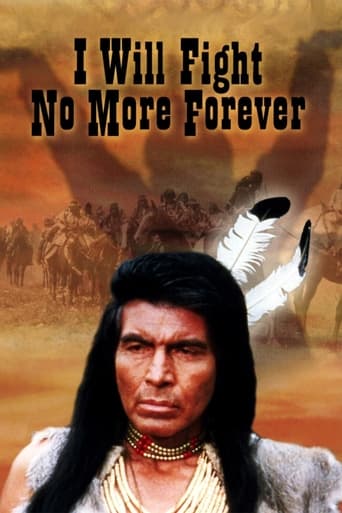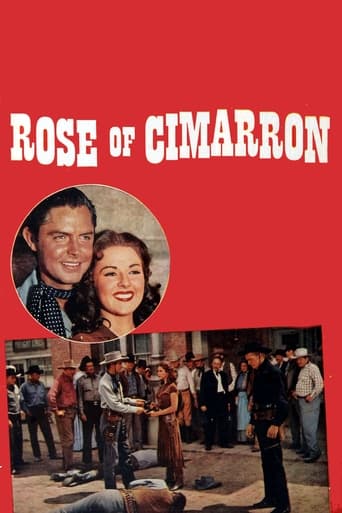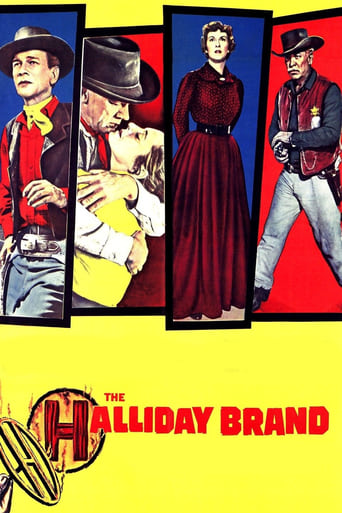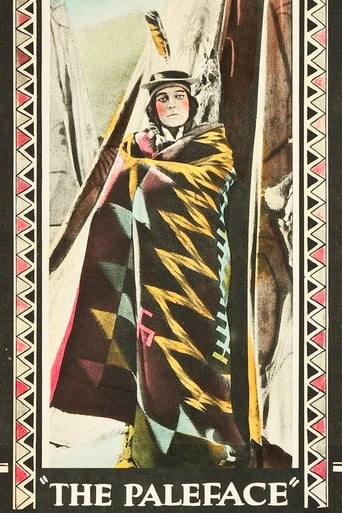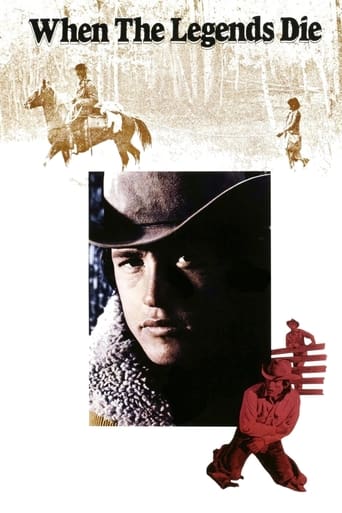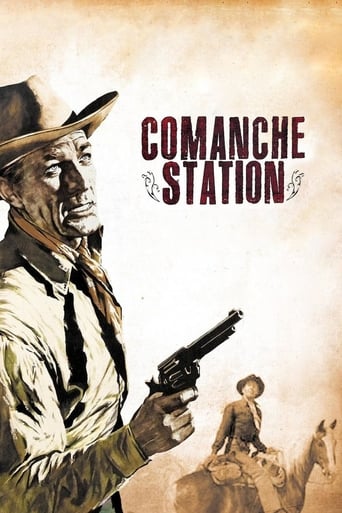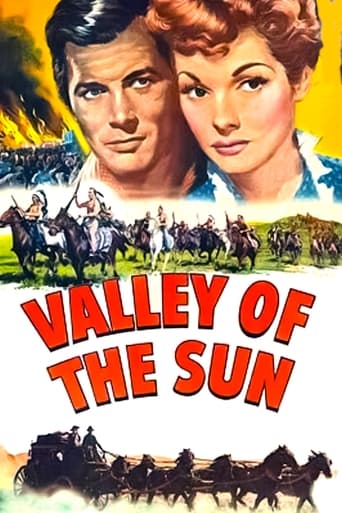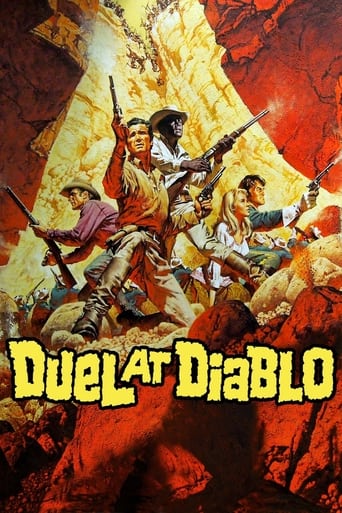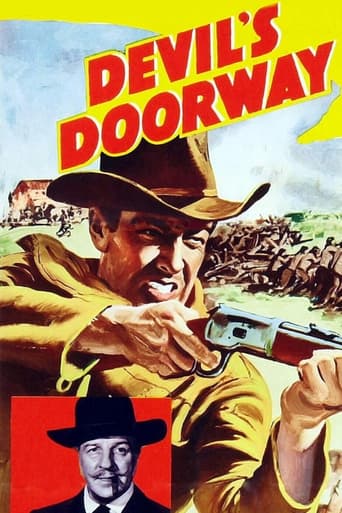
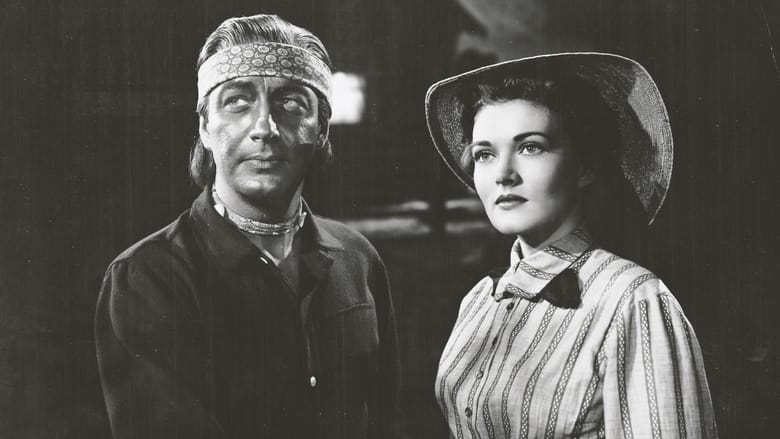
Devil's Doorway (1950)
A Native American Civil War hero returns home to fight for his people.
Watch Trailer
Cast


Similar titles
Reviews
What you have here is ostensibly a fine B Western that's raised a notch by it's intelligent and insightful treatment of racial prejudice. Director Anthony Mann found a way to make it work both ways too. An early scene establishes how the citizens of Medicine Bow will react to the return of Broken Lance Poole (Robert Taylor) from his service in the Civil War. Racist attorney Verne Coolan (Louis Calhern) makes no attempt to conceal his disdain for the Shoshone tribesman, and is only too willing to make a buck advising sheep herders to take advantage of a Homestead Act that denies property rights to Native Americans.What's interesting is Lance's immediate reaction to a female lawyer. He catches himself up on his own bias after initially walking out the attorney's door. Then follows Miss Orrie Masters (Paula Raymond) registering her own sense of disbelief that a well spoken and intelligent rancher could possibly be an Indian. I thought that entire scenario was well played out, while setting up the viewer for more racial disharmony to play out.The character of Marshal Zeke Carmody, portrayed by Edgar Buchanan, somehow managed to bother me somewhat. As a good friend of Lance Poole, I would have expected him to serve as more of a go-between for Poole in the defense of his family's long held property in Sweet Meadow. Instead, the Marshal hides behind the law to strictly enforce it's written word without regard to it's affect on the Shoshones. It was left to Attorney Masters to serve that same purpose, and her impassioned argument with Poole near the end of the story displayed a remarkably well thought out argument both sides used to rationalize their position.Oddly, one of the historical notes I questioned was the mention of Lance's service in three major Civil War battles taking place at Mechanicville, Antietem and Gettysburg. Not that it couldn't have been the case, but each battlefield was in a different state, with horrendous casualties registered at the latter two locations. Lance Poole's survival of those battles probably challenged the law of averages, but it wouldn't have been impossible. Receiving a Congressional Medal of Honor for his actions at Gettysburg was certainly meant to convey both his patriotism and heroism as a Union soldier.Perhaps even more meaningful though for viewers today was Poole's informed explanation of the Indian way of life and connection to the land on which he lives. He stated that the Shoshone is born to the Earth and becomes part of it. That explained his determined stance to protect his homeland right up to the inevitable point of compromise necessary to save the lives of his people's women and children.
Sensational western , deemed as the first Hollywood film to side with the Indians , along with ¨Broken arrow¨ by Delmer Daves and starred by James Stewart . It deals with Lance Poole (offbeat cast of Robert Taylor who surprisingly is pretty well) , an Indian Navajo who won a Medal of Honor fighting at Gettysburg , goes back to his tribal territory intent on peaceful cattle ranching . Returning home and finding a bleak situation : his people living in poverty . As usual , crooked settlers and mean traders (Louis Calhern) thwart peace . Some people and State laws attempt to take possession his lands . Then Lance hires an advocate at law (Paula Marshall) . The solicitor attempting to find truce among feuding white man and Indian people.This picture acclaimed like one of the first to deal the Indian with understanding and justice . The film contains agreeable depiction about Indian habits as it actually was , including adulthood initiations , complex mythology and peculiar culture .¨Devil's doorway¨ along with ¨Broken arrow¨ marked in the cinema field a trail of consideration and empathy toward native indigenous to North America, and lift the troublesome relationships between native and colonizers , then it would go on other films until reach its climax in the great and magnificent "Dancing with wolves" (Kevin Costner, USA 1990). Good acting by Robert Taylor as an Indian Navajo who served in Civil War and must fight to right the injustices against his people ; his perfect interpretation as "Lance Poole" remains one of the highlights in his prestigious career. Furthermore , an attractive Paula Marshall as a kind advocate and Louis Calhern as the intriguing lawyer "Verne Coolan" makes an adequate character of the evil . Support cast is frankly excellent such as Marshall Thompson as Rod MacDougall , the recently deceased James Mitchell as Red Rock , veteran Edgar Buchanan as Zeke Carmody , Rhys Williams and Scotty MacDougall and Chief John Big Tree as Thundercloud . Evocative and imaginative musical score by Daniel Amfitheatroph . This good film packs a splendid photography in atmospheric black and white by John Alton, another European -Austro-Hungarian- who emigrated US and became an excellent cameraman expert on Noir cinema as well as Nicholas Musuraca .This top-drawer Western was stunningly realized by the master Anthony Mann , infusing the traditional Western with psychological confusion , including his characteristic use of landscape with marvelous use of outdoors which is visually memorable , including a majestic production design by Cedric Gibbons , Metro Goldwyn Mayer's (MGM) ordinary . Mann established his forte with magnificent Western almost always with James Stewart . In his beginnings he made ambitious but short-lived quality low-budget surroundings of Eagle-Lion production as ¨T-men¨ , ¨They walked by night¨ , ¨Raw deal¨ , ¨Railroaded¨ and ¨Desperate¨ . Later on , he made various Western , remarkably good , masterpieces such as ¨The furies¨ , and ¨Devil's doorway¨ and several with his habitual star , James Stewart, as ¨Winchester 73¨ , ¨Bend the river¨ and ¨The far country¨ . They are characterized by roles whose determination to stick to their guns would take them to the limits of their endurance . Others in this throughly enjoyable series include ¨Tin star ¨ and ¨Man of the West¨ is probably one of the best Western in the fifties and sixties . After the mid-50 , Mann's successes came less frequently , though directed another good Western with Victor Mature titled ¨The last frontier¨. And of course ¨Devil's doorway ¨ that turns out to be outlandish but stylishly realized , well paced , solid , meticulous , with enjoyable look , and most powerful and rightly-considered . This well acted movie is gripping every step of the way . It results to be an over-the-top western and remains consistently agreeable as well as thought-provoking . Rating : Above average , the result is a top-of-range Western . Well worth watching and it will appeal to Robert Taylor fans .
A dark grim yet gritty movie is probably the best way to describe this fairly forgotten and under appreciated jewel of a western. Produced by Nicholas Nayfack for MGM in 1950 the picture - just like "Winchester 73" and "The Gunfighter" made the same year - marked the coming of age of the American western. DEVIL'S DOORWAY was the first movie which undertook to depict - in graphic terms - the plight of the native American in the west of the 1860s. It was also the first western to be directed by Anthony Mann who alongside John Ford would become the genre's most iconic director with his masterpiece "Winchester 73" and thereafter with his fruitful working relationship with actor James Stewart that would produce some of the finest westerns ever made like "Bend Of The River", "The Far Country" and the brilliant "Naked Spur". Nicely written for the screen by Guy Trosperm DEVIL'S DOORWAY was stunningly photographed in glorious Black & White in Aspen, Colorado by John Alton and was complimented with a splendid atmospheric score - featuring an exciting Indian motif - by Russian composer Daniele Amfitheathrof.With the Congressional Medal of Honour pinned to his Union tunic distinguished Shoshone Indian Sergeant Major Lance Poole (Robert Taylor) returns home from the war between the States to his people in his beautiful valley of Sweet Meadow. He is greeted by his aged and ailing father (Fritz Leiber) ("You are home - you are again an Indian"). But prejudice against the tribe is beginning to take hold in the nearby town instigated and then exacerbated by a shady Indian hating lawyer Verne Coolin (Louis Calhern). Things really come to a head when sheep-men arrive and need to graze their herds on Sweet Meadow but Lance will not allow it and orders them off his property ("This is my land and you're trespassing"). However they are encouraged by Coolin to take the land since the Homestead Act of the period states that it is forbidden for an Indian to own any land. An enraged Lance takes up arms and leads his people against the interlopers (a well executed battle scene). Finally with many deaths on each side the army are sent for to quell the fighting which leads to a tragic finale. Lance settles his score with Coolin before the final shootout with the army which sees him and his braves being killed, his village destroyed and the tribe - what's left of them - being escorted to the reservation.DEVIL'S DOORWAY is a superb western and deserves to be rediscovered. With Mann's earlier noir successes "T Men" (1947) and "Raw Deal" ('48) DEVIL'S DOORWAY contains wonderful noirish moments of outstanding quality such as in the bruising fist fight sequence in the Saloon between Taylor and gunman James Milican with its low angle camera and arresting use of light and shadow and again later for scenes inside the dimly lit Indian shacks. The acting throughout is splendid all round. Taylor arguably gives the performance of his long career in an unusual bit of casting. Eschewing his handsome MGM glamour-boy image (he was Gable's chief rival at the studio) he turns in a powerful and striking portrayal of great depth and substance. His performance as a man who sees his beloved valley being ripped out from under him and his people is heartfelt and sincere. Excellent too is Louis Calhern as the antagonistic racist lawyer. His part not being very far removed from his brilliant shady lawyer in the studio's "Asphalt Jungle" the same year.So here is a powerfully evocative and accomplished movie that was strikingly bold for its time and today remains compelling in its stark presentation. Directed by a man who was on the verge of western movie greatness DEVIL'S DOORWAY is a movie that shouldn't be missed by anyone who cares about the American western. It is a movie that with some reassessment and a little more exposure could easily become one of Hollywood's greatest achievements and perhaps even Mann's real masterpiece. A movie that makes the final and prophetic line in the picture that bit more fitting.......... "IT WOULD BE TOO BAD IF WE SHOULD EVER FORGET".
This movie is a hidden gem. Directed by Anthony Mann, it was probably the first "Civil Rights" Western that went "all in" in terms of presenting the Indian point of view. At the same time, Mann's intensity and fundamental dark view of mankind keep it from becoming condescending or maudlin. Pretty impressive to take this theme on so aggressively a full four years before the "Brown vs. Board of Education" Supreme Court decision kicked off the modern Civil Rights movement.Here are some of the pluses:This is an absolutely terrific performance by Robert Taylor, all the more impressive since it's hard to imagine him playing a full blooded Shoshone Indian. He pulls it off in spades. I haven't seen every Robert Taylor movie, but I can't believe he ever had a better part. Even more impressive, this is an ultra-liberal movie and in real life Taylor was a well known right wing kook. Now that's acting!!This is in black and white, but the movie has a fantastic look and feel to it. Mann's superior direction and creative camera angles jump out at you.One of my favorite Western themes, the Civil War tie-in, is prominent. Lance Poole is a decorated Union Army veteran who returns home to confront racism. In 1950, this is clearly a metaphor for the plight black WW2 veterans returning to the Jim Crow South.It is well plotted. Everything makes sense, is plausible and all the character's motivations are consistent and logical (not something you find in all Anthony Mann Westerns. See my review of "The Man From Laramie").In most cases, the love interest in Westerns is blatantly gratuitous. Orrie Masters, nicely played by Paula Raymond, is written solidly into the script as a sympathetic lawyer. Of course, the movie is once again way ahead of its time with its portrayal of a professional woman.An excellent portrayal of the Shoshones and their plight.Absolutely fantastic Montana location shoot. A shame it wasn't in color.The negatives in this movie are very minor:The problem with going "all in" Indian point of view is that it is inherently depressing.Could have used a stronger supporting cast. Louis Calhern is good as the heavy, but this part could have been stronger.No room for comic relief in the dark world of Anthony Mann. All that stops this from devolving into a lugubrious depress-fest is the edgy plot, good action scenes and Taylor's compelling performance.


